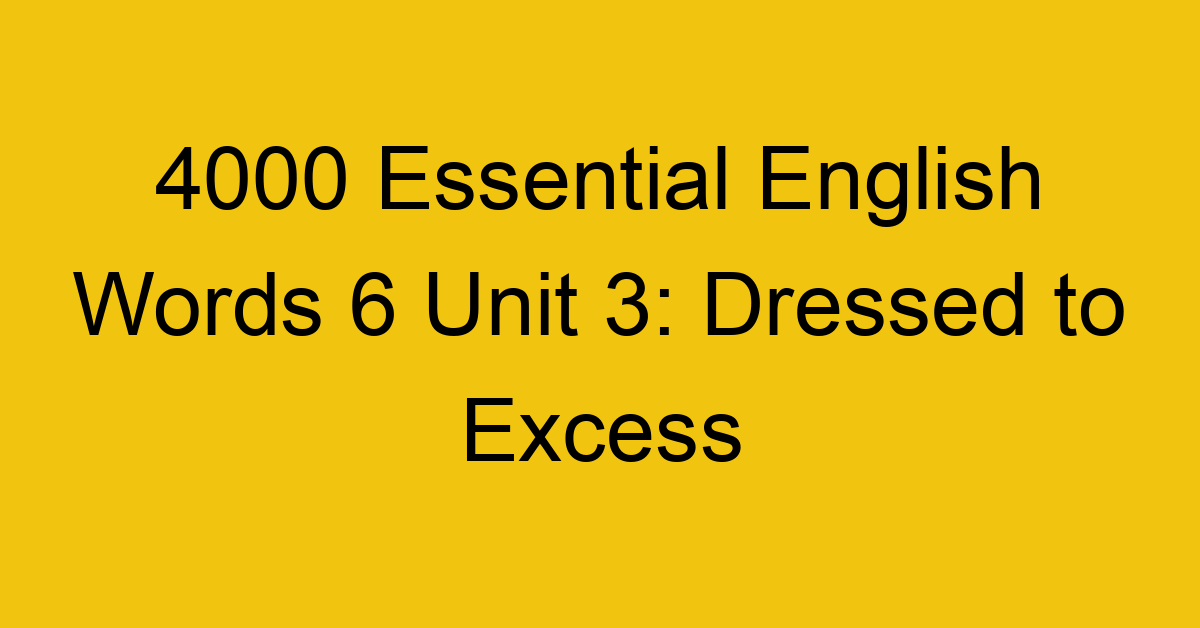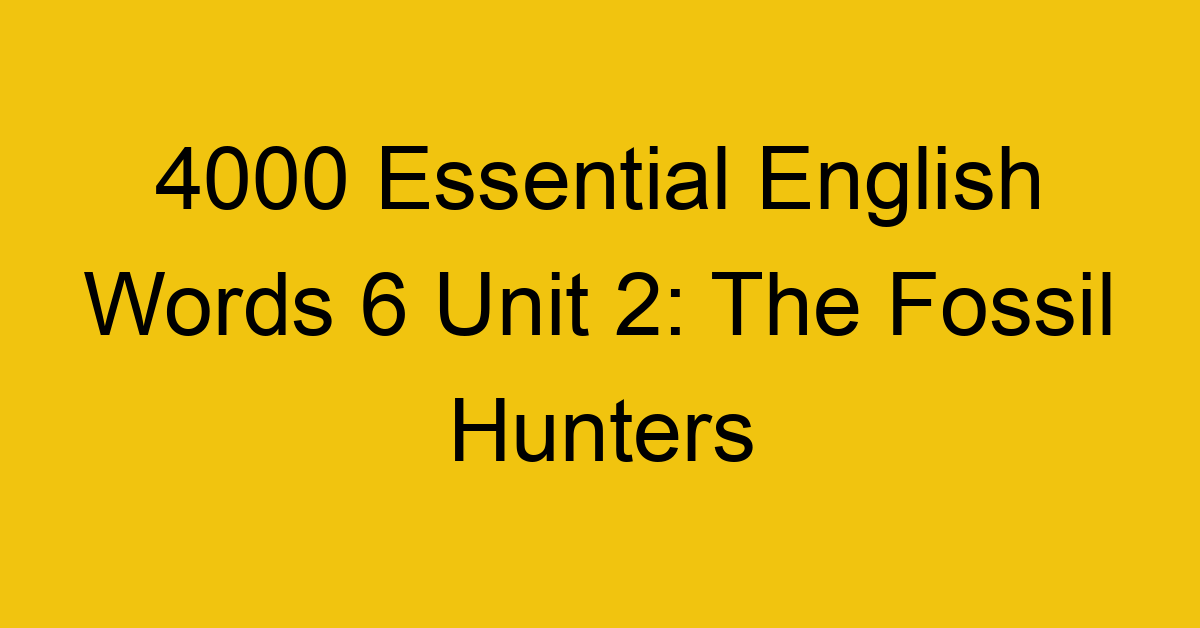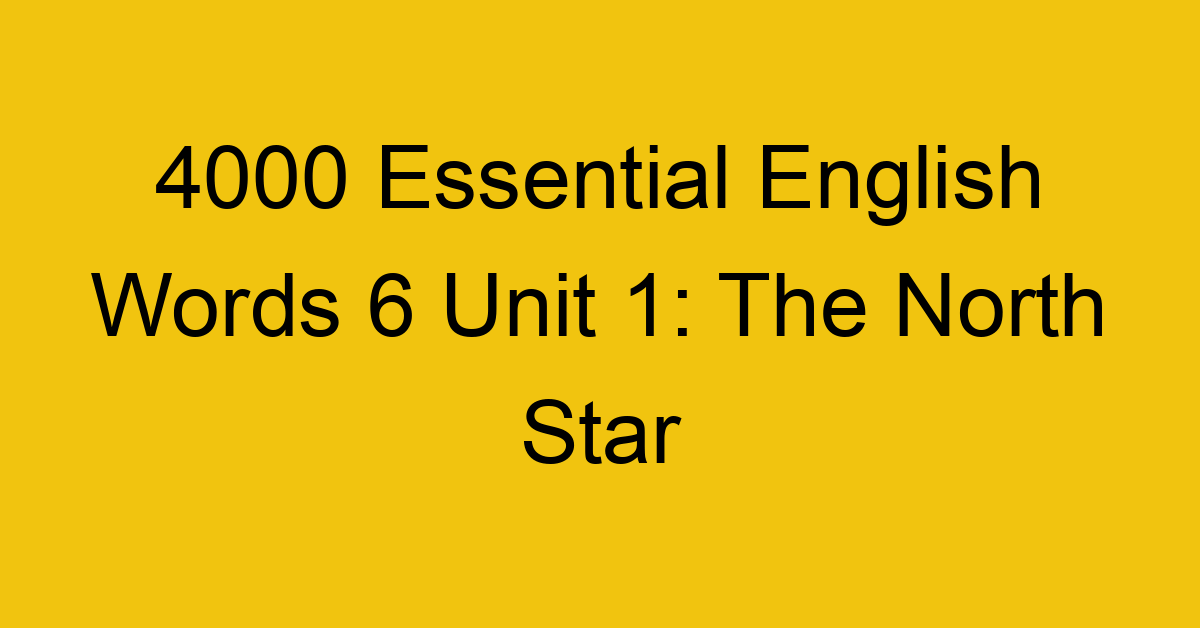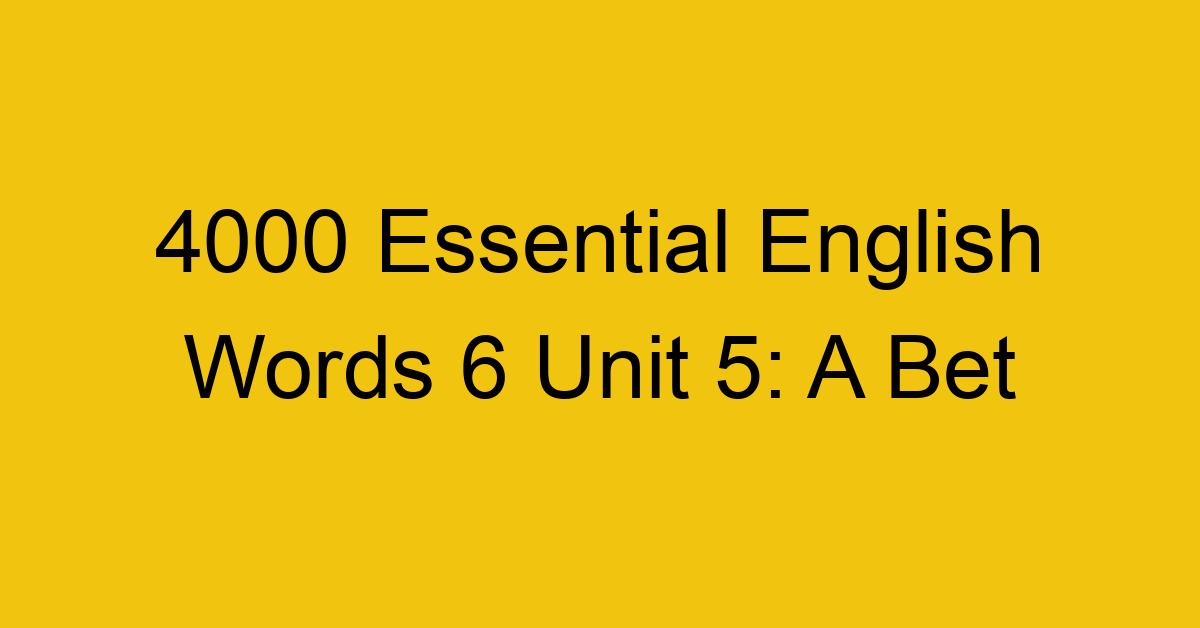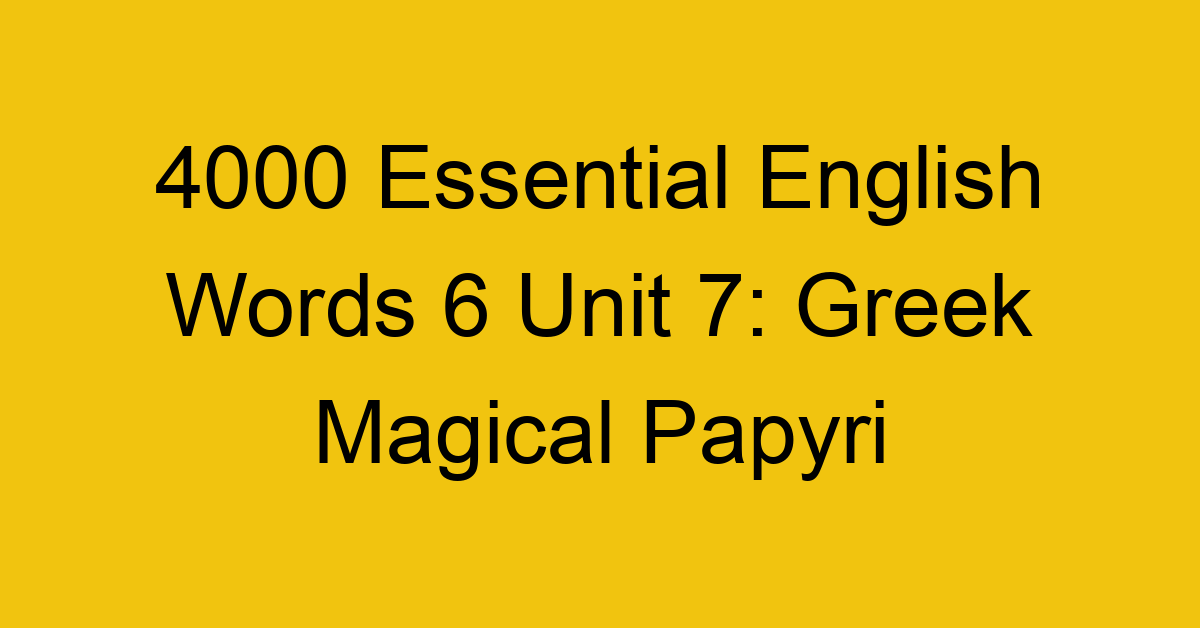4000 Essential English Words 6 Unit 4: The Butler’s Bad Day
Word List
- attic [ˈætik] n.
An attic is a room just below a house’s roof.
→ There were two windows in their attic.
- chunk [tʃʌŋk] n.
A chunk is a thick, solid piece of something.
→ When they broke open the rock, they saw it was filled with chunks of gold.
- civic [ˈsivik] adj.
If something is civic, then it is related to a town or city, especially its government.
→ Most of the important civic buildings are located downtown.
- descent [diˈsent] n.
A descent is a movement downwards.
→ During the space shuttle’s descent, the Earth became larger and larger.
- din [din] n.
A din is loud, unpleasant, and extended noise.
→ The din of the rusty machinery made the factory a horrible place to work.
- dissatisfy [dissӕtisfai] v.
To dissatisfy someone means to fail to please them.
→ He was dissatisfied with his meal.
- fuss [fʌs] n.
A fuss is excited or annoyed behavior that is not useful in any way.
→ The child made an awful fuss because she didn’t want to go to bed.
- gourmet [ˈguərmei] adj.
If food is gourmet, then it is nicer and more expensive than regular food.
→ In order to get a gourmet meal, you have to eat at an expensive restaurant.
- hence [hens] adv.
If something happens hence, then it happens as a result of something.
→ John forgot the key. Hence, we couldn’t open the door.
- intrinsic [inˈtrinsik] adj.
If something is intrinsic, then it is related to the basic nature of that thing.
→ Paper money has no intrinsic value. It is useful simply because society says it is.
- kettle [ˈketl] n.
A kettle is a large metal pot used for boiling liquids or cooking food.
→ The soup was being cooked in a large kettle.
- ministry [ˈministri] n.
A ministry is a government department.
→ The Ministry of Trade is responsible for taxing imports and exports.
- ordeal [ɔːrdiːəl] n.
An ordeal is a bad experience.
→ Driving in the snowstorm was an ordeal she’d never forget.
- outspoken [aʊtˈspoukkən] adj.
If someone is outspoken, then they are not afraid to say what they think.
→ She was an outspoken critic about the new banking laws.
- overwork [ouvərwəːrk] v.
To overwork someone means to make them tired with too much work.
→ After working for three weeks with only one day of rest, Judy was overworked.
- particular [pərtikjələr] adj.
If something is particular, then it is a single, important part of a group of things.
→ The dress shop didn’t have the particular dress she was looking for.
- pungent [ˈpʌndʒənt] adj.
If something is pungent, then it tastes or smells strong and sharp.
→ The garlic made the soup taste so pungent that the chef wouldn’t serve it.
- snore [snɔːr] v.
To snore means to make a loud noise each time a sleeping person breathes.
→ It was impossible to get to sleep because my husband snored.
- soundly [ˈsaundli] adv.
If something is done soundly, then it is done in the best or most complete way.
→ The nearest opponent was ten meters behind. She won the race soundly.
- superintendent [suːpərinˈtendənt] n.
A superintendent is a person who runs a certain department or building.
→ The superintendent decided to close the schools because of the weather.
